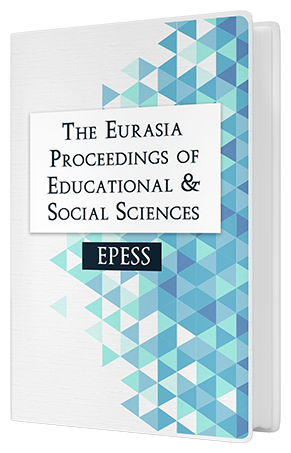Teachers’ Values and Expectations of Technology in Northern Territory Primary Schools
Keywords:
Technology ıntegration, Primary Schools, TeachersAbstract
Educational outcomes are particularly poor for the 43 percent of Australia’s Northern Territory students who are Indigenous, many of whom lag significantly behind their non-Indigenous peers (see ACARA, 2011.) The heavy investment by many NT schools in computers, interactive whiteboards and other educational technologies can be seen in part as an attempt to ameliorate their inherent disadvantage, thus equalising the learning opportunities in remote locations. Technology is a response to the need to better engage students and improve educational outcomes. This research examined motivational, pedagogical and systemic factors that affect the way technology is used in the classroom. Expectancy-value theory was used as a framework to organise and understand motivations when attempting to integrate technology into their teaching and how their expectation of the technology influenced their pedagogical goals. This research investigated what factors impact teachers’ perceptions of ICT integration in their classes by looking at skills, practices, attitudes and ability to confidently integrate technology as a teaching tool. Data were gathered through observations of technology-based lessons and semi-structured interviews with teachers in Australia’s Northern Territory schools. Results showed teachers placed high value on using technology for education; however, expectancy of its success was frequently diminished when teachers perceived barriers beyond their immediate control such as the lack of human resources to support the technology, and a lack of effective professional development resulting in teachers lacking confidence to successfully deliver a technology based lesson.Downloads
Published
Issue
Section
License
Copyright (c) 2018 The Eurasia Proceedings of Educational and Social Sciences

This work is licensed under a Creative Commons Attribution-NonCommercial-ShareAlike 4.0 International License.
The articles may be used for research, teaching, and private study purposes. Any substantial or systematic reproduction, redistribution, reselling, loan, sub-licensing, systematic supply, or distribution in any form to anyone is expressly forbidden. Authors alone are responsible for the contents of their articles. The journal owns the copyright of the articles. The publisher shall not be liable for any loss, actions, claims, proceedings, demand, or costs or damages whatsoever or howsoever caused arising directly or indirectly in connection with or arising out of the use of the research material. All authors are requested to disclose any actual or potential conflict of interest including any financial, personal or other relationships with other people or organizations regarding the submitted work.




